'Everybody's scrambling': RI law enforcement agencies are grappling with a staff crisis
Lower education criteria. Boosted training salaries. Increased tolerance for tattoos and facial hair. A quicker path to the top pay. Lateral transfers. Law enforcement agencies across Rhode Island are taking steps to sweeten the offerings for would-be recruits.
“Everybody’s scrambling. It’s essentially a crisis,” said David Lambert, director of the Justice System Training and Research Institute at Roger Williams University. “There’s a lot of soul-searching in police departments about how to do better recruiting.”
Across the state and the nation, agencies are seeing flagging numbers of applicants, even as their ranks edge closer to retirement age. Adding to that is increasing competition from neighboring towns and cities promising better work conditions and benefits. These forces are combining to leave some departments hemorrhaging officers at a time when interest in pursuing a career in law enforcement is lagging as never before.
“From COVID to the present, the numbers are ridiculously low,” said Sid Wordell, executive director of the Rhode Island Police Chiefs Association. “We’re just not seeing the individuals coming forward for law enforcement.”
More: Should police wear body cameras in schools? Why the issue has become a battleground.
Department of Corrections faces record retirements
That’s a stark reality in the Rhode Island Department of Corrections, where 194 officers are currently eligible for retirement and another 223 will qualify in the coming year, according to department records. With a workforce of roughly 900 officers at the Adult Correctional Institutions, it amounts to a third of the staff that could head out the door.
“We’re falling far short. If we see this mass exodus, we’re in trouble,” Richard Ferruccio, president of the Rhode Island Brotherhood of Correctional Officers union, said.
The department took steps aimed at recruitment and retention in reaching contract terms in February. The agreement increased the rates that recruits are paid during the training academy from a $500 weekly stipend to a “competitive” starting salary of about $60,000. The pace at which officers can achieve the top step quickened from 20 years to 14 years, and officers will see salary hikes of 2.5% at 25 and 30 years in hopes they will remain.
“We’re hoping that will be a more attractive salary,” Ferruccio said. “You get to that top pay scale so much faster.”
Even so, five officers have recently left for the municipal police academy, he said.
Gov. Dan McKee has budgeted for two corrections training classes of 50 officers each in the coming fiscal year, but the class to graduate in May stands at 20, Ferruccio said.
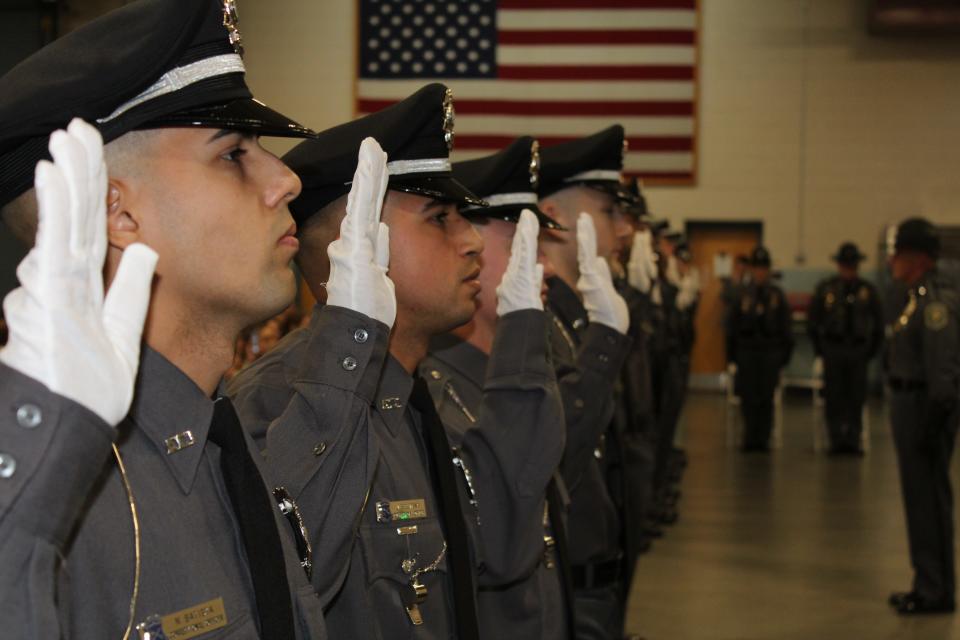
The department relies on online recruiting platforms, mailing lists, social media and career fairs at local colleges and high schools, among other strategies, corrections spokesman JR Ventura said.
“We have been fortunate to have a steady flow of applicants at various stages of our recruitment process,” he said.
So far, there are approximately 150 applicants in the hiring process for the academy class of 2023, he said.
The department is also changing its physical fitness test from one used by many law enforcement agencies to a less rigorous assessment used by the U.S. Bureau of Prisons, a step the union opposes, Ferruccio said.
“We just don’t think it’s the direction to go,” Ferruccio said.
More: Camera crews will follow Warwick police again with 'On Patrol: Live' TV show
The department stands behind the new standard, which is based on an assessment of physical agility tests conducted by correctional agencies from around the country and “more specific to the duties of a correctional officer.”
A persistent and expensive problem remained unaddressed in the new contract: officers working 32-hour shifts and accruing overtime to plug staff shortages, , sometimes tripling their wages.
“Everything is staff-driven,” Ferruccio said. “We have a significant number of officers who are getting frozen in. That’s frustrating.”
Rhode Island is one of the few states that allow officers to work "quads" of four consecutive shifts.
Division of Sheriffs tries to master a 'shell game' of staff shortages
Shortages in the Division of Sheriffs are delaying court proceedings statewide, leaving judges at times unable to take the bench, defendants awaiting court appearances in lockup, trials delayed, and lawyers’ schedules being bogged down by complications that ripple throughout the day.
“It’s like a shell game,” said Chief Sheriff David DeCesare, whose deputies are responsible for protecting judges, transporting prisoners to court and overseeing courtroom safety. At least six deputies may be needed to safeguard a courtroom during a trial with a high-risk defendant.
The effects are being felt by the judiciary.
“The inability to ensure safety in our courtrooms due to the sheriff shortage impedes access to justice and cannot be overstated,” said Lexi Kriss, spokeswoman for the judiciary.
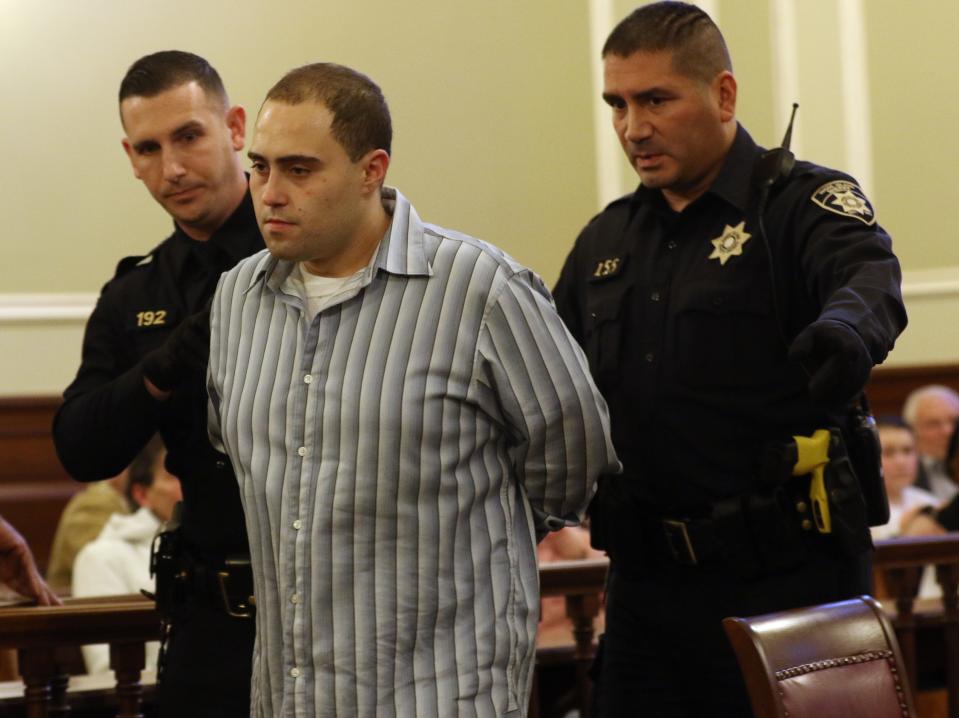
The division is about 50 officers short of the full 181-member complement. It has seen 11 deputy sheriffs resign and another 11 retire over the last year.
“We’re looked at now like the farm team for the police departments,” DeCesare said.
Exit interviews indicate that the leading contributors are low pay, lack of advancement and the retirement age of 67, unlike most law enforcement agencies in which officers can often retire at 50 years of age and 25 years of service. While deputies work weekday shifts and get weekends and holidays free, they do not have the opportunity to boost their income with detail pay and overtime.
“They say 'I can’t see myself doing this for 45 years.' Having been a retired police officer, I get it,” said DeCesare, who served as deputy chief of the Johnston Police Department. “You can see how we’re upside down.”
More: Why police and state agencies are opposing updates to RI's public records laws
In 2022, its training academy had six graduates, two of whom have already left, he said. According to the union, the division hired 86 deputies between 2013 and 2022, 47 of whom have resigned.
One deputy in a courtroom is not safe, Jim Cenerini, legislative coordinator for Local 94 of AFSCME AFL-CIO, told state lawmakers earlier this month. “You’re putting people in danger.”
To draw more recruits, the division dropped a requirement that applicants have 60 college credits. It now accepts a high school education or GED.
The division made a big recruiting push this year, branching out on social media, through radio ads and local media outlets, thanks to an employee with marketing expertise. It saw 305 applicants for the training academy set to start in the coming weeks.
While cheering the number of prospective recruits, DeCesare knows many will drop off as the process progresses. As seen with most agencies, about half will show up for the agility test and more will be disqualified by the written test, background checks, or medical and psychological testing.
The union is hoping for changes in state law that would put the division’s retirement ages and benefits more in line with local police departments. The division and the courts would also like to see all the sheriffs move to a 40-hour work week — a $600,000 cost that the governor did not include in his budget.
More: 'Money grab': Is East Providence profiting from deceptive billing for police details?
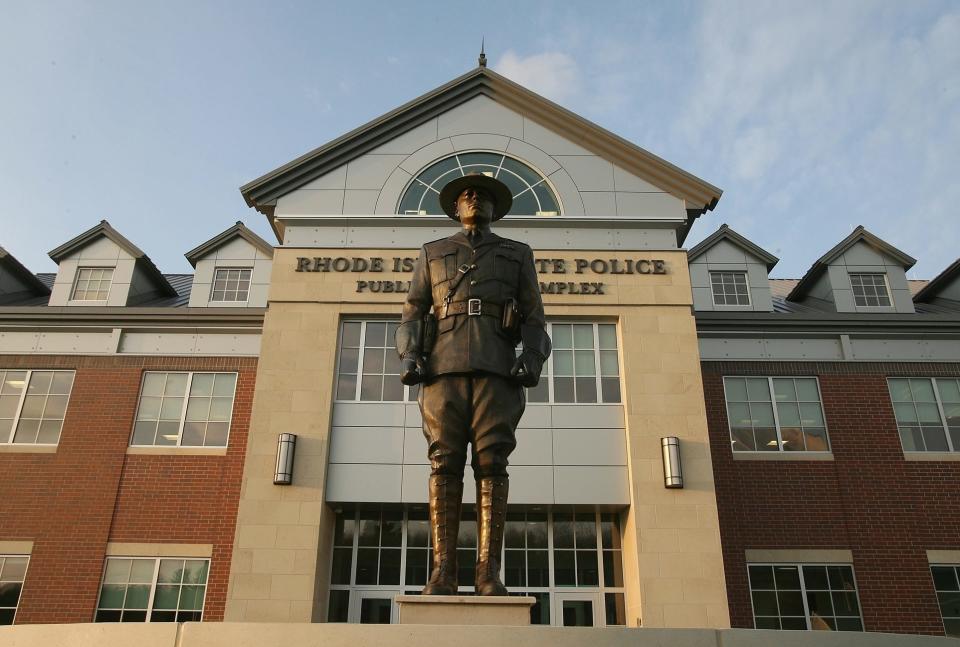
Rhode Island State Police face a changing landscape
Gone are the days when thousands of prospective recruits flooded the Rhode Island State Police with applications.
“Before, they came knocking on our door. We need good people to be troopers,” said Rhode Island State Police Maj. Kenneth S. Buonaiuto. “All I can say is that people are much less interested in law enforcement.”
Since 2015, the agency has seen a dramatic decline in applicants, which sank below 1,000, to 986, for the first time last year. This year, 629 people applied for 40 slots in its training academy after a recruiting push that hit the Dominican Festival, food truck events and even wedding fairs.
“We targeted very diverse groups,” Buonaiuto said.
The state police have taken steps to improve their recruiting odds by increasing the salary for their live-in training academy from $1,300 to $1,800 biweekly, Col. Darnell Weaver told state lawmakers at a recent House Finance Committee Public Safety Subcommittee hearing.
Of the applicants, 525 are men and 99 are women, with 75 identifying as Black and 124 as Hispanic.
More: Rhode Island State Police lose 'great ambassador,' dog that investigated child pornography
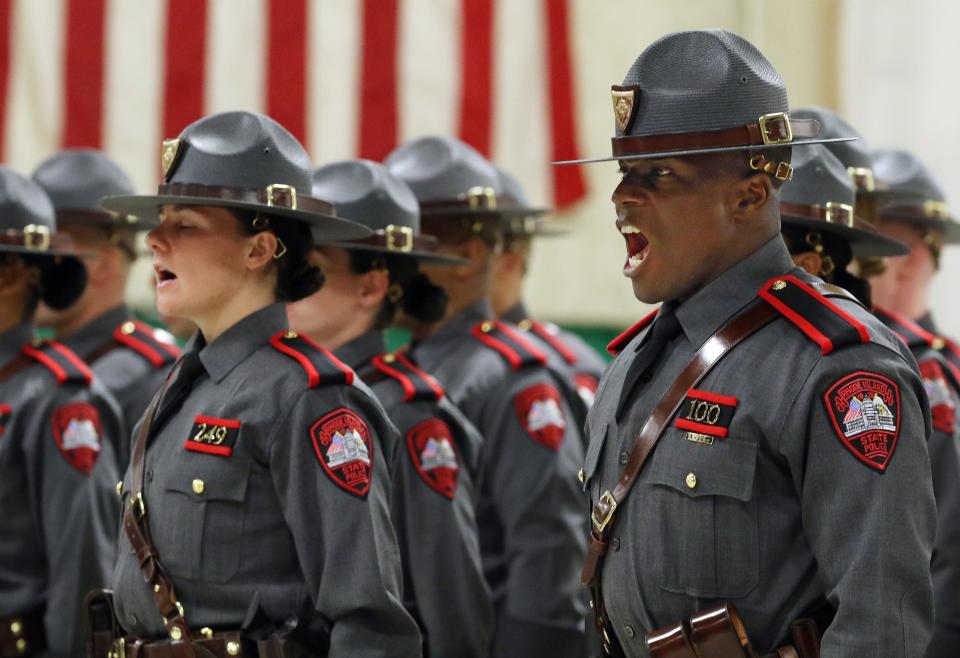
Like other agencies, the state police have experienced many no-shows for the agility tests and a dismal 25% pass rate. The agency is trying to ease the way for the first time by holding practice sessions to teach prospective recruits the proper form for pushups and other exercises, hoping it will give them an edge.
“We wanted to provide them with every opportunity we could to help them succeed,” Buonaiuto said.
A trooper from the department’s recruiting unit also called each applicant and provided them with a contact they could reach out to during the lengthy process, Weaver told the subcommittee.
The training academy will bring the agency to near full staff, as it currently has 42 vacancies.
Providence Police Department to recruit year-round
The Providence Police Department is down 80 officers from a full staff of 491, but those numbers should ease somewhat this fall when 30 Training Academy graduates join the ranks.
“It’s concerning. … I would like to be at full strength, but I have to deal with the challenges that are happening nationally with recruitment,” Col. Oscar Perez said.
Facing those difficulties, the department for the first time moved to accept applications for lateral transfers from other Rhode Island police departments, a step Perez hopes will bolster staffing. Several officers are now in that process and will need to be approved by the Rhode Island Police Officers Commission of Standards and Training.
“We’re going to try to come up with a higher number, he said.
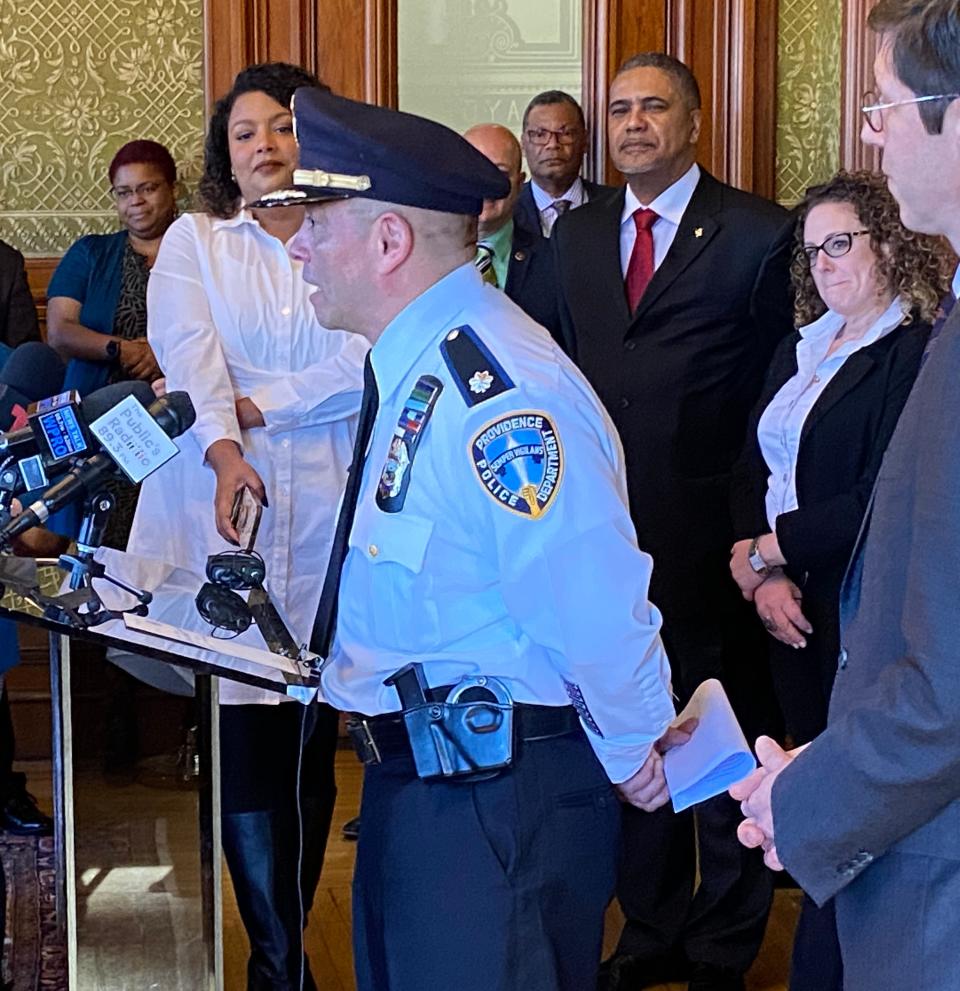
The department is also doing outreach with high schools, colleges and community partners, such as the Nonviolence Institute and the Providence Police Advisory Board, to attract candidates. Even so, it fell short of 50 hires authorized by the city, fielding only 30 qualified candidates for the latest academy.
Perez plans to make recruiting a year-round effort. “I would love to have a constant recruitment process,” he said.
By the end of the year, there will be 24 officers over 60 years old, according to the department. Another 90-plus are eligible to retire after reaching 20 years of service.
“There are many officers eyeing retirement before July, given that our contract expires at the end of June 2023, and due to the overall feeling of a lack of support from many in the public and some politicians,” said Michael Imondi, president of the Fraternal Order of Police Lodge No. 3. “The uncertainty of the next contract is weighing heavily on the minds of those eligible to retire, it's a driving force leading many to consider retiring earlier than they normally would.“
Still, Perez touts the benefits of working as a police officer in such a diverse city and in a department that has opportunities to specialize as bike patrol, school resource officers, the mounted command, and narcotics and major crimes.
“This provides professional development,” said Perez, who’s about to enter his 30th year with the Providence Police Department.
More: Providence will use undercover officers and surveillance to stop ATV joyriding in city
What’s driving the recruiting crisis?
Rhode Island is not alone in grappling with declining interest in law enforcement as a profession. A survey by the International Association of Police Chiefs found that 78% of law enforcement agencies nationwide reported having trouble recruiting qualified candidates, a downward trend that started about a decade ago and picked up in severity over the last five years. In response, half have changed policies to draw more recruits.
“They’re trying everything,” even signing bonuses, Lambert, of Roger Williams University, said.
With lower applicant pools comes a less diverse field, he said. “This is especially a problem for department diversity and equity goals, where they are seeing less female and minority recruit candidates.”
The theories on what is driving the trend are myriad. Law enforcement itself places the blame on negative perceptions fueled by media coverage, combined with increased scrutiny and cellphone recordings of their interactions with the public. Most police officers reported that their jobs have grown more difficult since high-profile use-of-force incidents involving police, including the murder of George Floyd.
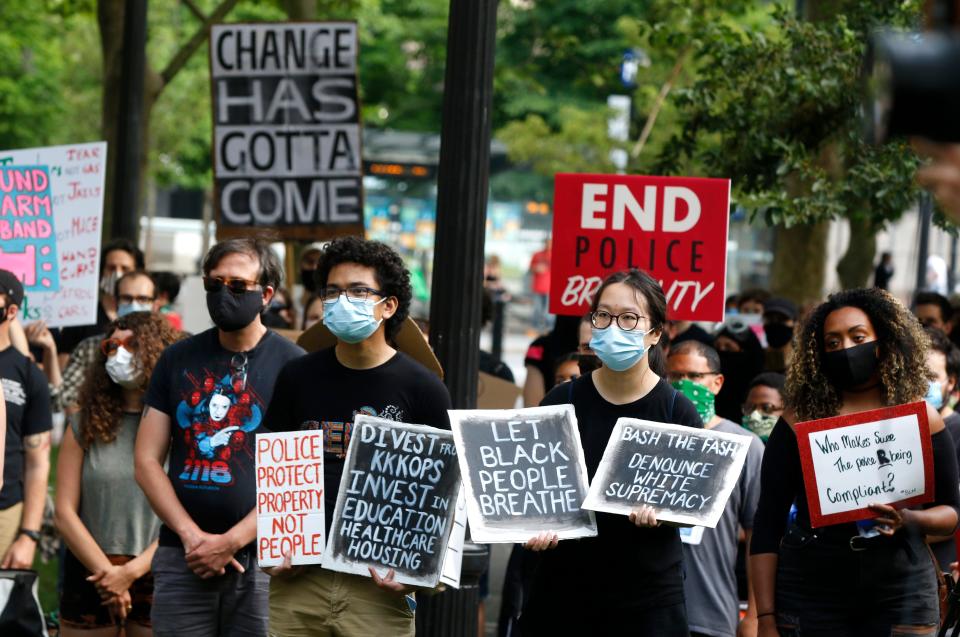
Providence’s Imondi puts a share of the responsibility on “sometimes violent anti-police groups, many political leaders, and some attorneys general nationally” who he says have demonized and vilified the law enforcement profession and emboldened criminals.
“They have made police officers feel as if any wrong move or wrong decision can lead to termination or worse, prosecution, causing fear and apprehension in many officers and dissuading many otherwise good and qualified candidates from becoming police officers,” he said.
“Many now wonder why would someone want to become a police officer, putting their life on the line every time they put their uniform on, when you could do something else, like become a school bus driver and make 12 cents more an hour than you do as a police officer in Providence at the top step? It's a local and national crisis that will take years to correct and only after more support is shown to police officers,” Imondi said.
Do younger candidates have unrealistic expectations about a law enforcement career?
Lambert says he’s seeing a generational divide, with the students he teaches having unrealistic expectations about a law enforcement career. He strives to demythologize the field.
“You don’t come to a police department and become a detective on day one. A lot of these kids want to go right to the fun stuff,” he said. Potential police candidates undervalue the role that patrol officers play in community policing and problem solving, he said.
The police survey concluded, too, that millennials and Generation Z tend to place a higher value on work-life balance than generations before. That means they are seeking flexible hours and guaranteed time off and are less willing to miss holidays with family or be held over for overtime shifts, as seen at the Rhode Island Department of Corrections.
Some experts are calling for police to rethink the recruitment process, which typically stretches from four months to a year, to be more candidate-centered and more in line with the private sector.
“Many students cannot wait up to a year to find a job,” Lambert said.

Departments are also revisiting restrictions, such as minor past drug use, tattoos, facial hair and checks of credit history, that may be barriers to many candidates without having a clear impact on the quality of policing, Lambert said.
But he cautioned that the crisis has spurred some agencies to reduce some of their standards in a way that may have negative long-term effects. He is not a proponent of lowering educational requirements.
“[W]e are asking police officers to address a wider range of social problems, such as substance use disorder, mental illness and cybercrime. Does it make sense to eliminate some college-level education at a time when our challenges are more complex? … We want police officers to be problem solvers, critical thinkers, change agents in their community and to be culturally competent,” he said.
Police officials remain hopeful that recruitment will rebound in the coming years.
“I’m hoping things turn around with law enforcement, because it’s a great career,” the state police's Buonaiuto said. “I hope things change so that young people can see it’s a rewarding career.”
This article originally appeared on The Providence Journal: Rhode Island law enforcement agencies grapple with a staffing crisis

